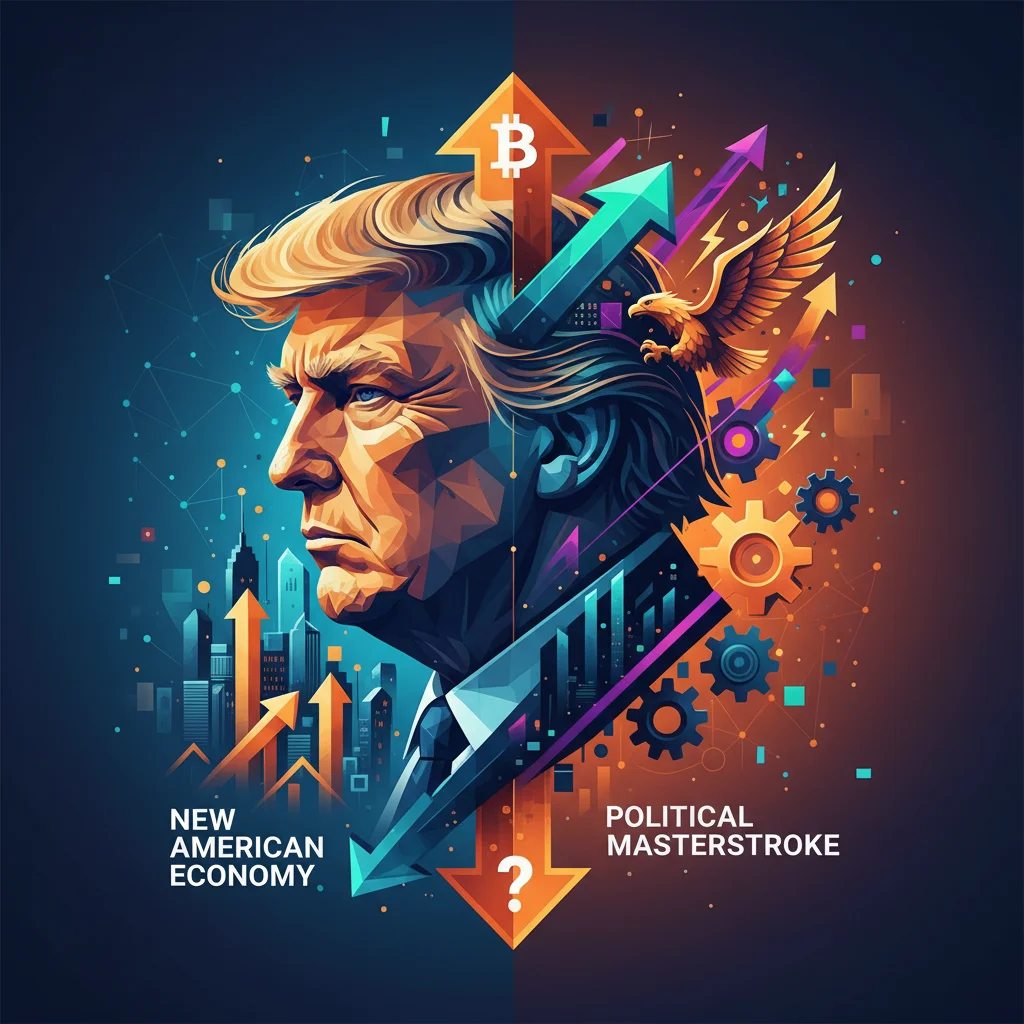
Trump’s Crypto Gambit: A New American Economy or a Political Masterstroke?
In the world of politics and high finance, few reversals are as stark or as potentially consequential as Donald Trump’s recent embrace of cryptocurrency. The former president, once a vocal critic who dismissed Bitcoin as a “scam based on thin air,” is now positioning himself as the industry’s staunchest ally in Washington. This dramatic pivot is more than just a campaign trail talking point; it’s a high-stakes bet that could reshape the American economy, redefine the future of financial technology (fintech), and draw a new battle line in the 2024 presidential election. But is this a genuine vision for a decentralized American future, or a calculated maneuver to capture a powerful new political and economic bloc?
For investors, business leaders, and anyone with a stake in the future of the economy, understanding the forces behind this shift is critical. It touches upon the core tenets of finance, the stability of traditional banking, the direction of the stock market, and the very nature of money itself. We are witnessing a potential turning point where blockchain technology is moving from the fringes of the internet to the center stage of American political discourse. This post will delve into the motivations behind Trump’s crypto conversion, analyze the potential economic and financial ramifications, and explore the profound questions it raises about the intersection of politics and the future of investing.
The Great Reversal: From “Scam” to Strategic Asset
To appreciate the magnitude of this policy shift, one must recall the not-so-distant past. During his presidency and in the years immediately following, Donald Trump was unequivocally hostile towards cryptocurrency. He viewed it as a direct competitor to the U.S. dollar and a tool for illicit activities. In 2021, he stated plainly, “Bitcoin, it just seems like a scam… I don’t like it because it’s another currency competing against the dollar.” (source). His administration’s stance reflected this skepticism, often emphasizing a need for stringent regulation.
Fast forward to today, and the narrative has been completely rewritten. Trump now pledges to make America a global hub for crypto innovation, vowing to protect the rights of individuals to self-custody their digital assets and encouraging domestic Bitcoin mining. His campaign recently announced it would accept donations in various cryptocurrencies, a move that was both symbolic and practical (source). This evolution from staunch critic to fervent advocate is one of the most intriguing subplots in modern American politics and economics.
To illustrate this dramatic change in stance, consider the following comparison of his positions:
| Policy Area | Past Stance (Pre-2023) | Current Stance (2024 Campaign) |
|---|---|---|
| Overall View of Crypto | “A scam,” “based on thin air,” “a threat to the dollar.” | “I am very positive and open-minded,” “We have to have it.” |
| Regulation | Implied support for heavy-handed regulation to protect the dollar’s primacy. | Advocates for a lighter touch to foster innovation and keep crypto companies in the U.S. |
| Central Bank Digital Currency (CBDC) | Not a major talking point, but generally aligned with traditional banking structures. | Vehemently opposed, promising to “never allow” a CBDC to protect financial freedom. |
| Bitcoin Mining | No stated policy, but general sentiment was negative towards the industry. | Supports domestic mining operations as a strategic move for energy grid stability and national security. |


